Dive guides sometimes have a tricky job. They often have to pull together a group of divers with different interests and experience levels and create a safe and enjoyable experience for everyone. If a guide is completely unfamiliar with the random assortment of divers about to go underwater with him, he has to assess the situation as best he can. Who is going to need help? Who is going ignore protocols? While it is probably not the nicest thing to admit, as a guide I find myself assessing divers from the moment I meet them. My way of assessing divers is probably different from that other guides, but here are some of the key points that I use. Of course, sometimes my judgement is way off!
1. Do You Listen to Dive Briefings?
There are few things more annoying than a diver who ignores dive briefings or distracts himself while the guide is speaking. Poor behaviors include chatting with dive buddies, fiddling with dive gear, and gazing longingly into the distant horizon. Dive briefings include valuable safety information such as the location of first aid supplies, methods of entering and exiting the water, the dive plan, and emergency scenarios. Most guides also include information regarding the wildlife and dive site features that divers can expect to see.
Not only is it rude to ignore a guide during a dive briefing, but it is disrespectful to other divers in the group, who may be distracted by this behavior. If I am on a dive boat and notice a diver ignoring a briefing, I immediately assume he is arrogant, unsafe, and probably not a very good diver. Most of the responsible, experienced divers that I know listen to every briefing carefully, even if they have been to the dive site before.
In the best of cases, a diver who doesn’t listen to a briefing is simply being rude. In the worst of cases, he is the one climbing into a panga with all his gear on, after specifically being told not to, injuring himself and maybe other divers. No matter what, I am going to watch this person carefully.
2. In What Condition Is Your Gear?
The gear a diver uses can tell guides quite a bit about a diver. Someone who uses rental gear is probably a casual recreational diver, and other than his ability to set it up and use the proper names for items (if English is your first language and you are calling a regulator a “respirator,” I am worried), using rental gear won’t tell a guide too much. Not so for personal gear.
Someone who shows up on a dive boat with brand new gear will certainly be watched carefully on the first dive or so. Divers with new gear may be inexperienced or unfamiliar with their gear, and this can often create problems for them during the dive. To be clear, I am not saying that this is the diver’s intent, but it does happen. Of course, the diver may also be extremely experienced and just have a new piece of kit. Either way, I will pay a little extra attention to this person until I am sure he is okay on the dive. I will probably ask him a whole bunch of questions about the shiny new gear as well, as I am always interested in hearing diver’s opinions of innovative or new models. Props for committing to the sport and investing in your own equipment!
Worn, but well-maintained gear generally sets me at ease. This sort of gear indicates a diver who is experienced enough to have used his gear a bit, and knowledgeable and safety-minded enough to keep it in good condition. On the other hand, the diver could have just purchased the gear off eBay, so everything with a grain of salt.
And then there is the Christmas Tree Diver. This is a person who brings his own dive gear – a lot of his own diver gear — and it dangles off of him like ornaments on a Christmas tree. He has a 10-inch dive knife strapped to his calf for Caribbean reef diving. He has retractor clips . . . attached to nothing. This is the person who has to disentangle his regulator from all the other stuff hanging off of his BCD just to start the dive. I feel bad for this person; he has been the victim of an overzealous salesperson at a scuba shop. I am concerned, not only for the diver and his ability to access items in an emergency, but for the reef, as he will invariably drag items across it at some point on his dives. Most of all, though, he just looks silly.
3. Do You Take Personal Responsibility for Your Dives?
So, which divers do I love? I love the divers who show up to dive with a dive computer (and the ability to use it). I love the divers who have an intelligent answer to the question, “How much weight do you need?” No one expects a diver to know how much weight he needs if he has a new wetsuit and is diving with unfamiliar gear. But, if he knows how much weight, what sort of exposure protection, and whether he dove in fresh or salt water on his last dive, most guides can get the weighting pretty close. I love the divers who understand how to set up (and check!) that their dive gear is working, and who insist on checking it even if a guide set it up for them.
A diver’s ability to take personal responsibility for himself and his dive gear makes me feel a great deal more confident in his underwater abilities. Even if he isn’t the world’s best diver, I am pretty sure he will be able to handle himself decently underwater and that he will be confident with himself and his gear. Plus, I like him. He is making my job easier .
Divers who are asked how much weight they used yesterday (on the same boat, in the same gear) and respond “two big ones,” however, tend to irk me a bit. I tend to think they are not very aware, and are likely to have difficulties underwater.
4. What’s In Your Dive Logbook?
To be honest, I don’t evaluate divers on whether or not they keep a detailed logbook (although it is a nice way to reminisce about your dives and prove your experience). However, if a diver does keep a logbook, it tells me information about the diver and what he enjoys. I am likely to adjust my guiding style and briefings to suit him.
One example is a diver who writes down every single fish and creature he sees underwater. Obviously, this person cares a great deal about wildlife. My next dive briefing will certainly include more details about creatures unique to the region, and a wider variety of hand signals for interesting fish. I will take more time to point out small, often overlooked animals to this diver, because I know he will enjoy them and won’t be annoyed by the fact that I find a juvenile slender filefish fascinating and want to watch it for a minute or two.
Conversely, a diver who has detailed notes about equipment configuration and dive statistics, but not a single note about wildlife, might not be as interested marine life as the first diver. I will probably leave him alone during the dive unless I see something big or unusual, and let him simply enjoy the zen-like experience of diving. I won’t break his concentration every thirty seconds to show him a fish.
I don’t consider one of the two divers in these examples better or worse than the other, but seeing what divers record in their log books helps me to know their interests and to make their dives more enjoyable.
5. How Do You Talk About Diving?
Scuba divers enjoy the sport for a variety of reasons, and most of them are good ones. I love hearing my divers’ stories of unique wildlife encounters and once-in-a-lifetime dive trips. Sometimes, however, a diver meets the group and immediately launches into a series of tales about wild or “badass” dives that he has made. He tells stories about close calls or dangerous situations. He laughs about them.
These sorts of chats do not impress me, as I do not consider diving an adrenaline sport (if done correctly). I am much more interested in how someone pulled off a perfect technical dive, what his back-up plans were, and how his planning made the entire experience run smoothly. In the end, as a guide my primary responsibility is the safety of my divers, and the adrenaline junky “bro” is the one I expect to be pulling off the turtles and rescuing with my alternate air source.

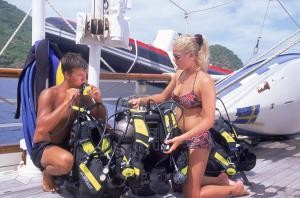
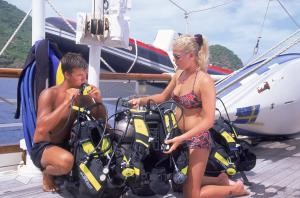


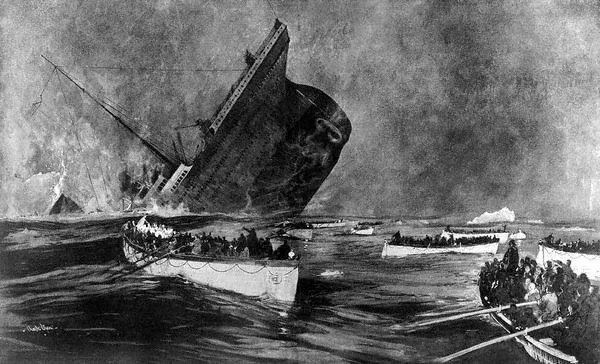
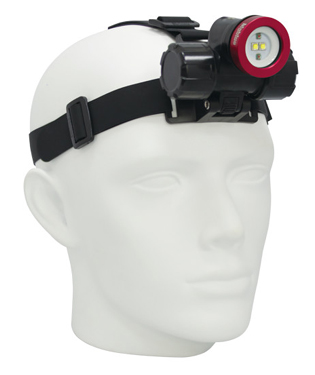
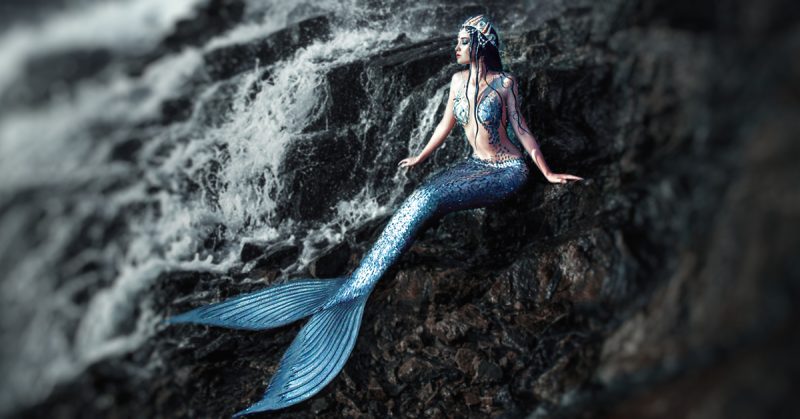
Leave A Comment